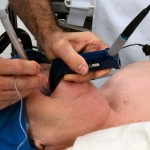
An Emergency Medicine Attending Physician's Perspective:
From an interview with an Emergency Medicine physician in Colorado. Part of an interview series entitled, "Specialty Spotlights", which asks medical students' most burning questions to physicians of every specialty. See what doctors from every specialty had to say about why they chose their specialty and how to match in their residency.
What attracted you to Emergency Medicine?
Emergency Medicine is the perfect combination of acuity and generality. I'd like to say that every patient I treat has an emergent reason to be in the ED, but unfortunately, that's not the case. However, many do. We evaluate, stabilize, and initiate treatment for critically ill patients every day. We hold difficult discussions with families, provide reassurance to parents, and address a large spectrum of medical illnesses. We are specially-trained to address any potential problem that could walk through the door, be it trauma-related, pediatric, geriatric, or anything in between.
Describe an emergency department physician's typical work day?
The typical day is quite variable, depending on the day of the week and time of day that you are working. As emergency physicians, we work in shifts. This means that our work days have predetermined start and end points. While those end points may flex slightly depending on the flow of the department on any given day, and you may be required to stay an hour or so late, when you leave you are done and no longer have to worry yourself about patient care responsibilities.
I usually arrive 10-15 minutes early for a shift to provide the off-going doctor with a few extra minutes of relief, knowing just how busy his or her day could have been. After signing PA charts and verbal orders from the day before, I get right to seeing patients, or asking around to see if there's anything pending that my partners might need assistance with. From that point, it's moving from room to room, patient to patient, providing counsel, instruction, reassurance, and at times, bad news. The number of patients seen in a typical shift will vary from day to day, and depending on where you work whether it be a busy urban / suburban ED or a more rural setting, but even in the rural setting any given shift can become incredibly busy; it all depends on the day.
The hallmark of the emergency physician is the disposition. At the end of every patient encounter, the patient will either be discharged home, admitted, or transferred. There are typically no loose ends to worry about or results that will be pending for tomorrow that require attention. Each day brings a new census of patients that will come and go according to their respective disposition, and the cycle repeats itself.
What type of lifestyle can an Emergency Physician expect?
As a result of "shift work", the lifestyle of an emergency physician is largely customizable by the individual. In my group, it's fairly easy to request certain days off for sporting events, school performances, or other special occasions. When those come up unexpectedly, fellow physicians are very accommodating of shift trades. This allows me to be present for my family when I want / need to be. When I'm off during the day, I have time with my wife and young child, and I am home to help with school-aged children, homework, as well as afternoon trips to the park and bike rides, etc.
Saying that an emergency physician never takes call is a bit of a misnomer; our group does have a back-up call system for unexpected illness, emergency, or even a horrendously busy day in the department when we need an extra person to decompress the waiting room. I take one 24-hr period of call each month, and find that I very rarely get called in. Specifically, in the last year I cannot remember being called in, and have only seen 1 or 2 of my partners called in.
Our group is very equitable about how we disperse shifts. We do have several dedicated night-docs who take the majority of our night shifts, and the rest are dispersed equally among the rest of us. I work a mixture of shifts, and find that I work on average 14-15 shifts a month (mostly 9 hour shifts), with 4-5 of those being overnights or late evening shifts. This varies by month of course, but on average my number of night shifts is very manageable.
There will be times when you will have to work nights, weekends, and holidays, but the trade off is time off on weekdays
What is the potential salary of an Emergency Physician?
Specialty-specific salary information is available from many sources, and this varies by region as well as the collecting agency. The most current numbers from Medscape (http://www.medscape.com/
What is the job market like for Emergency Medicine?
Honestly, it's great. You can literally get a job anywhere in the country. Having said that, not all jobs in EM (or medicine in general) are created equal. There are certain markets that are more difficult to break into because of a given reason (i.e. mountains, beach, prestigious academic institutions, etc.) but those doors can open by pursuing fellowship training, other post-graduate experience, networking, and sometimes just persistence and demonstrating proficiency above that of your competitors.
What can you tell us about Emergency Medicine subspecialties?
Post-graduate fellowship training is currently available for Critical Care, EMS, Ultrasound, Administration, Research, Toxicology, Pediatric Emergency Medicine, Disaster medicine, Simulation and Education, Sports Medicine, Health Policy, Emergency Cardiology, International Emergency Medicine and Global Health, Hyperbarics, Legal Medicine, Emergency Neurology, and Wilderness Medicine.
Most of these are 1 year, some are 2 (CCM, Peds). Salary numbers will vary greatly depending on your chose practice site (private vs Academic, geographic location), and as you subspecialize, your job market narrows significantly (i.e. if you train in Peds and need to work at least part of your shifts in a large children's ED, that limits you geographically), but at the same time some of this post-graduate training can give you quite the edge over other applicants to help you break into more difficult markets. It's all about what you want to build your practice into. For example, if you want to be a toxicology or legal expert, you can likely work in either an academic or private group while still taking call at the poison center / consulting with a malpractice firm.
What are the potential downsides of Emergency Medicine that students should be aware of?
Every specialty and every job will have some downsides. There are times when dealing with consultants can be challenging, or when patients come to the ED with a chronic problem, sometimes having had a thorough workup, expecting you to be able to solve their problem in an hour or two. You have to be able to take these experiences with a grain of salt, knowing that they will come occasionally, but are greatly outweighed by the opportunity to positively impact both the critical and not-critical (but still ill) patients.
Most people also quote chronic narcotic-seeking patients as a downside. These patients can be challenging as well, but in all reality many emergency departments have policies in place that make this much easier, and you have the backing of your administration and the nurses in the department, making disposition without narcotics on these patients easier.
Editor's Note: For more help choosing a specialty in medicine, I highly recommend one or both of these two great books. I found both very useful.





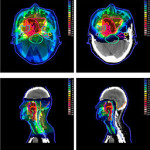

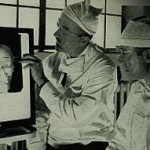
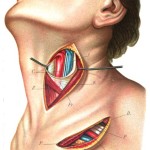
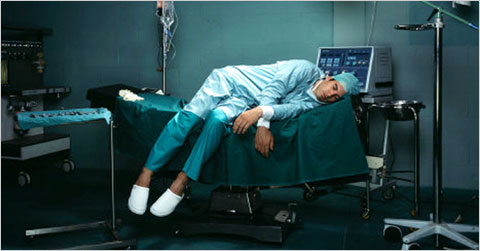
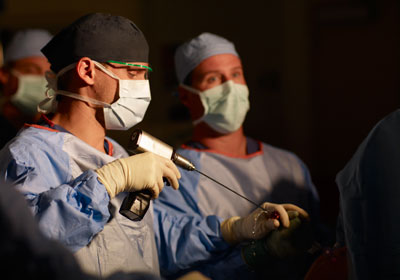



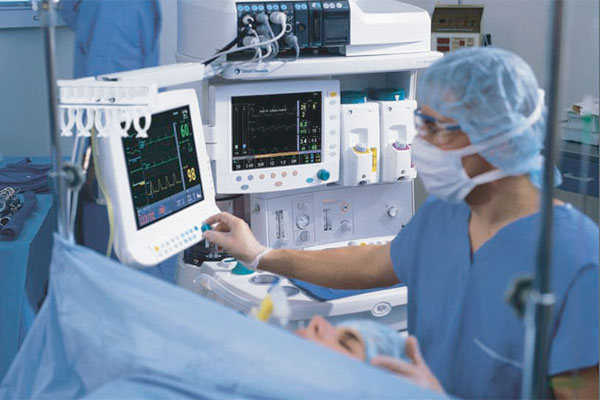
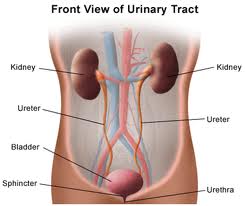
 My name is Andrew and I am a first year resident training to be an ophthalmologist. I created ShortWhiteCoats to provide medical students, residents, and the public with all the information I spent so many hours looking for during medical school.
My name is Andrew and I am a first year resident training to be an ophthalmologist. I created ShortWhiteCoats to provide medical students, residents, and the public with all the information I spent so many hours looking for during medical school.








